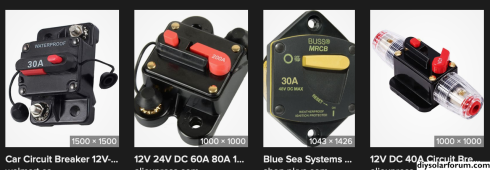atatistcheff
Solar Enthusiast
- Joined
- Sep 20, 2019
- Messages
- 176
Looking for some thoughts on a battery disconnect arrangement for an RV mounted solar system. What I'm trying to address is the guidance that you should not connect your solar panels to your charge controller without the battery connected. I've done that accidentally once or twice and haven't broken anything but I'm still trying to follow that best practice.
Using two XT-60/90 connectors for solar and battery I just remember to "connect the battery first and disconnect the solar first" when I'm disconnecting the battery from the RV. However, a more idiot proof design would be a single switch that disconnects both sources at the same time. The issue I'm seeing is that most (all?) battery disconnect switches are SPST. I really need a DPST (or DPDT would work too) with an amperage rated high enough. Now, I'm not running an inverter so the current doesn't need to be enormous but a measly 10A switch probably wouldn't be a good idea.
Any thoughts/recommendations would be appreciated.
Using two XT-60/90 connectors for solar and battery I just remember to "connect the battery first and disconnect the solar first" when I'm disconnecting the battery from the RV. However, a more idiot proof design would be a single switch that disconnects both sources at the same time. The issue I'm seeing is that most (all?) battery disconnect switches are SPST. I really need a DPST (or DPDT would work too) with an amperage rated high enough. Now, I'm not running an inverter so the current doesn't need to be enormous but a measly 10A switch probably wouldn't be a good idea.
Any thoughts/recommendations would be appreciated.



